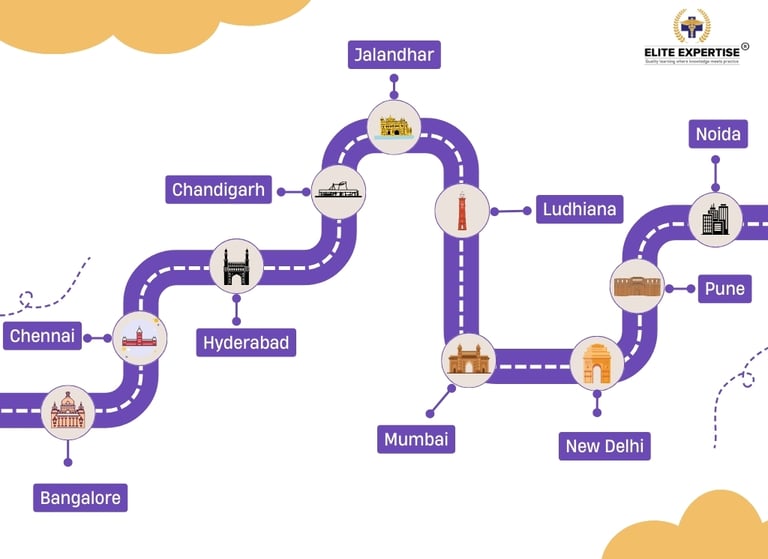ASK MY PHARMACIST | GOT QUESTIONS? Your pharmacist has answers. Click Here
Steps to Become a Pharmacist in New Zealand
The OPRA exam is an important milestone for overseas pharmacists who wish to practice in New Zealand. The updated exam format, with its more concise structure and focus on practical knowledge, makes it an essential step toward registration.
Arief Mohammad
12/6/20242 min read


Introduction :
The process of becoming a pharmacist in New Zealand as an overseas-qualified individual involves several key steps. Let’s break them down:
1. Initial Skill Assessment by the Pharmacy Council of New Zealand (PCNZ)
Before you can sit the OPRA exam, you’ll first need to have your qualifications assessed by the Pharmacy Council of New Zealand (PCNZ). This is to determine whether your academic background and registration status meet the eligibility criteria for the exam.
Cost: NZD 777
2. New Zealand OPRA Exam
The OPRA exam is conducted online, and you can take it at one of the test centres available in New Zealand or India. The exam is held three times a year, typically in March, July, and November. It consists of a single paper with 120 multiple-choice questions, and you have 2.5 hours to complete it. Note that you’ll be allowed two attempts to pass the exam.
Cost: AUD 2,190
Test Centres in India:


For better preparation, I recommend enrolling in the New Zealand OPRA Exam Coaching and Preparation Course, which provides you with the resources to pass the exam on your first attempt.
3. New Zealand Pharmacy Legislation (NZPL) Course
Once you’ve passed the OPRA exam, the next step is to complete the New Zealand Pharmacy Legislation (NZPL) Course. This online course will give you an understanding of New Zealand’s professional, legal, and ethical pharmacy requirements.
Duration: 3 months
Cost: NZD 2400
Enrollment is available once a year, so make sure to plan accordingly.
4. Registration as an Intern Pharmacist
After completing the NZPL Course, you can apply for registration as an Intern Pharmacist. This step is essential for gaining practical experience under supervision.
Cost: NZD 957 (after May assessment) and NZD 340 (after November assessment)
5. EVOLVE Internship Programme
The EVOLVE Internship Programme is where you’ll gain hands-on experience in a supervised environment. This training period runs from February 1st to November 7th each year and includes workshops, appraisals, and assignments designed to enhance your skills and professional competencies.
Cost: NZD 8,950
6. Complete Registration
Once you’ve completed the EVOLVE internship and all the necessary assessments, you’ll be eligible to apply for full registration as a pharmacist with the Pharmacy Council of New Zealand.
Cost: NZD 1312 and NZD 695.33 (post-November)
Final Thoughts
The OPRA exam is an important milestone for overseas pharmacists who wish to practice in New Zealand. The updated exam format, with its more concise structure and focus on practical knowledge, makes it an essential step toward registration. By following the steps outlined in this blog, you’ll be well on your way to achieving your goal of becoming a licensed pharmacist in New Zealand.
If you need further guidance or are looking for comprehensive coaching, feel free to reach out. I also recommend checking out our New Zealand OPRA Exam Coaching and Preparation Course, which offers everything you need to succeed.
Follow Us
+91 76750 84909
Privacy Policy | © 2025 Elite Expertise . All Rights Reserved.
ELITE EXPERTISE PTY. LTD (ABN: 15668292439) (ACN: 668292439)
Australian Statutory Education License: OPP 2025 ELITE EXPERTISE PTY. LTD
Disclaimer
Elite Expertise is an online education platform dedicated solely to providing coaching and preparation services for the OPRA, PEBC, PSI and PTE exams. We do not offer any sponsorship or migration services. All information provided on our platform is for educational purposes only and should not be interpreted as legal or immigration advice. For inquiries regarding sponsorship, visa applications, or migration services, please consult with licensed immigration professionals or relevant authorities.
Elite Expertise is a trusted and results-driven training platform specializing in preparation for international pharmacist licensing exams. Our comprehensive courses, expert instructors, and proven methodologies have helped countless pharmacy professionals achieve their goals and succeed in competitive regulatory exams. We are proud of our strong success rate and commitment to excellence.
Elite Expertise is an independent training provider. We are not affiliated with any global pharmacy regulatory authorities or official exam-conducting bodies.
Copyright © 2026 Elite Expertise. All rights reserved.
Address
Unit 1/73 Beverley St, Doncaster East VIC 3109, Australia
